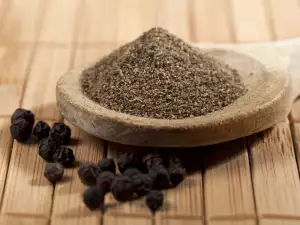There is hardly a person who is not familiar with the beneficial properties of black elderberry. In this advice, we will talk specifically about black elderberry syrup - about its benefits, its preparation and how to drink it. So, let's get started.
Black elderberry is a plant that is used worldwide. It helps our body especially in winter. Native American tribes use it a lot to treat various infections. On the other hand, in ancient Egypt, they used black elderberry to protect themselves from burns. Nowadays, this plant is most often used to stimulate the better functioning of our immune system, as well as to prevent and treat colds and flu.
Intake and storage of elderberry syrup
Elderberry syrup is stored in the refrigerator and taken every day - from 1/2 to 1 tsp. every day when it's cold and flu season;
- The recommended dosage of elderberry syrup is the following:
- from 1/2 to 1 tsp. for children;
- From 1/2 to 1 tbsp. for adults.
If you have a cold or flu, the dose is taken every 2-3 hours.
Homemade elderberry syrup can be kept for up to two weeks in the refrigerator. You can freeze the syrup in ice cube trays.
Benefits of black elderberry
- From the elderberry plant, its fruit are most often used. They are not only delicious, but also very helpful for treating colds and flu. Also, elderberries support heart health and help fight various infections;
- Black elderberry has very few calories and is extremely high in antioxidants. 100 g contains 73 calories, 18.4 grams of carbohydrates and only 1 g of fat. It also contains a lot of fiber, vitamin C;
- Black elderberry, as well as its syrup, have a very beneficial effect on the health of the heart, helps to effectively treat the upper respiratory tract, has strong antibacterial properties;
Risks and side effects of using elderberry syrup
Despite the fact that this plant, as well as its syrup, are very good for our health, there are also some risks of its use, which are:
- In the peel of the unripe fruit and in the seeds there is a small amount of substances called lectins, which irritate the stomach and cause nausea, vomiting and diarrhea if too much of them are eaten;
See how it's done:



















Comments